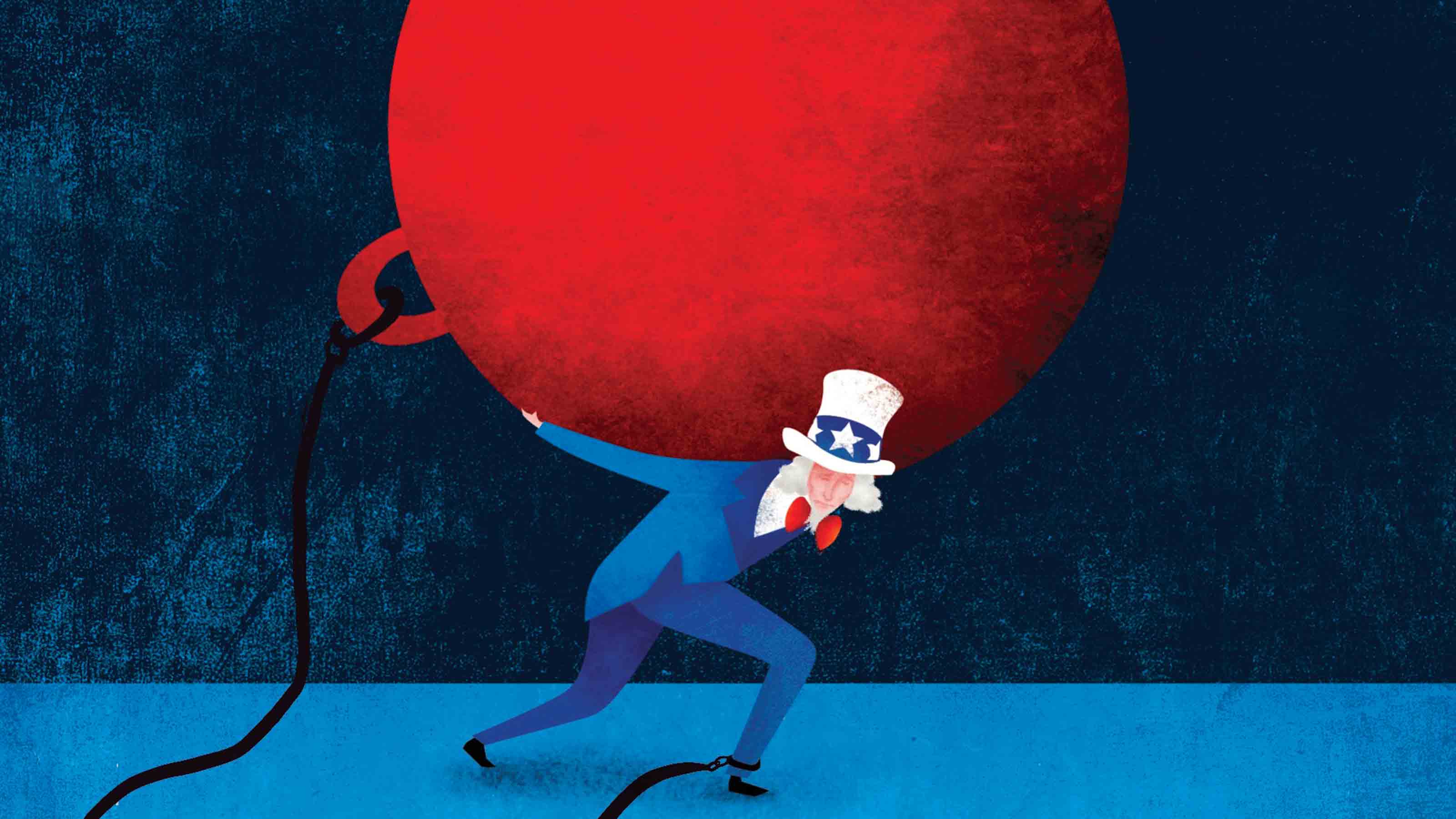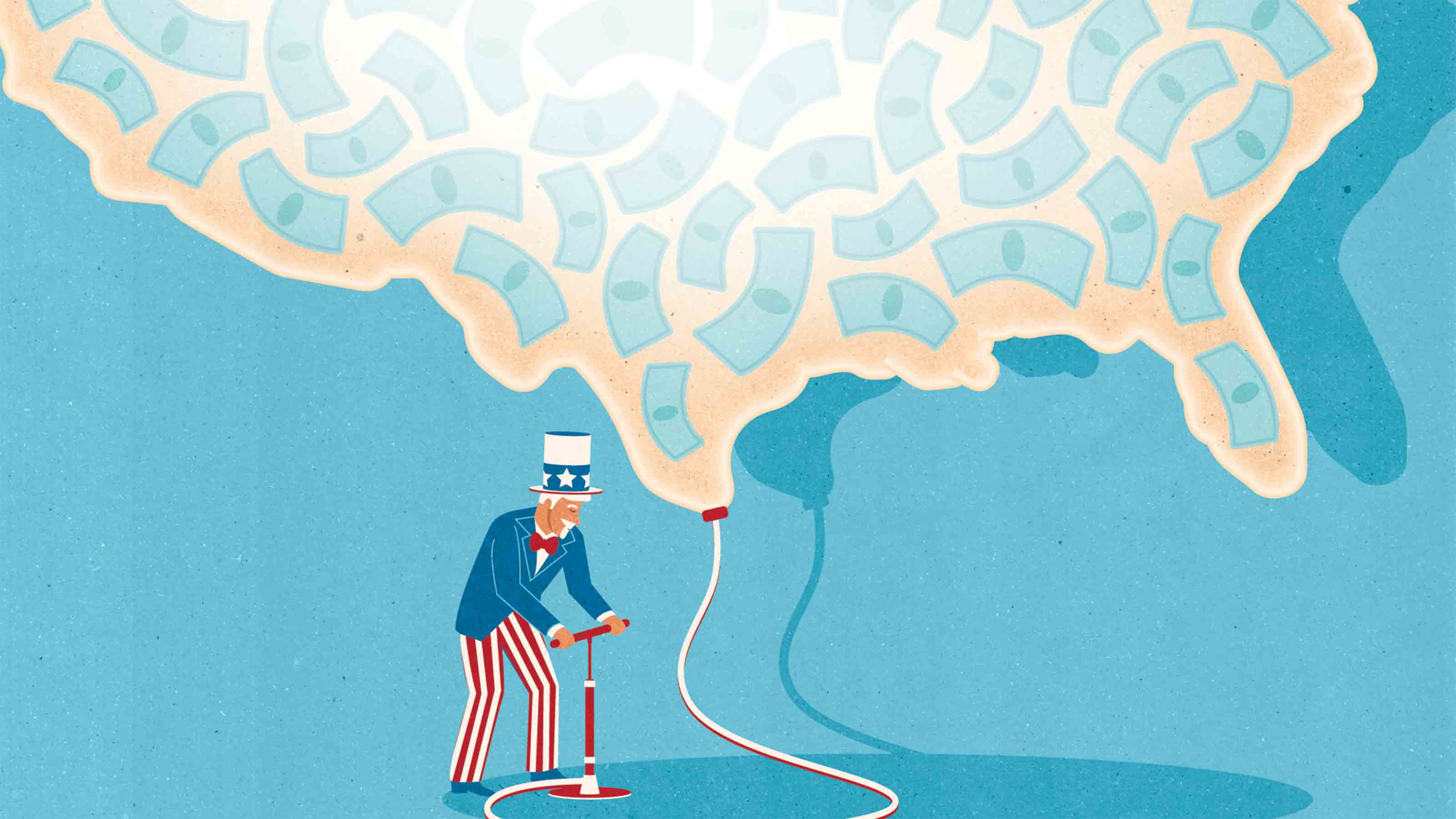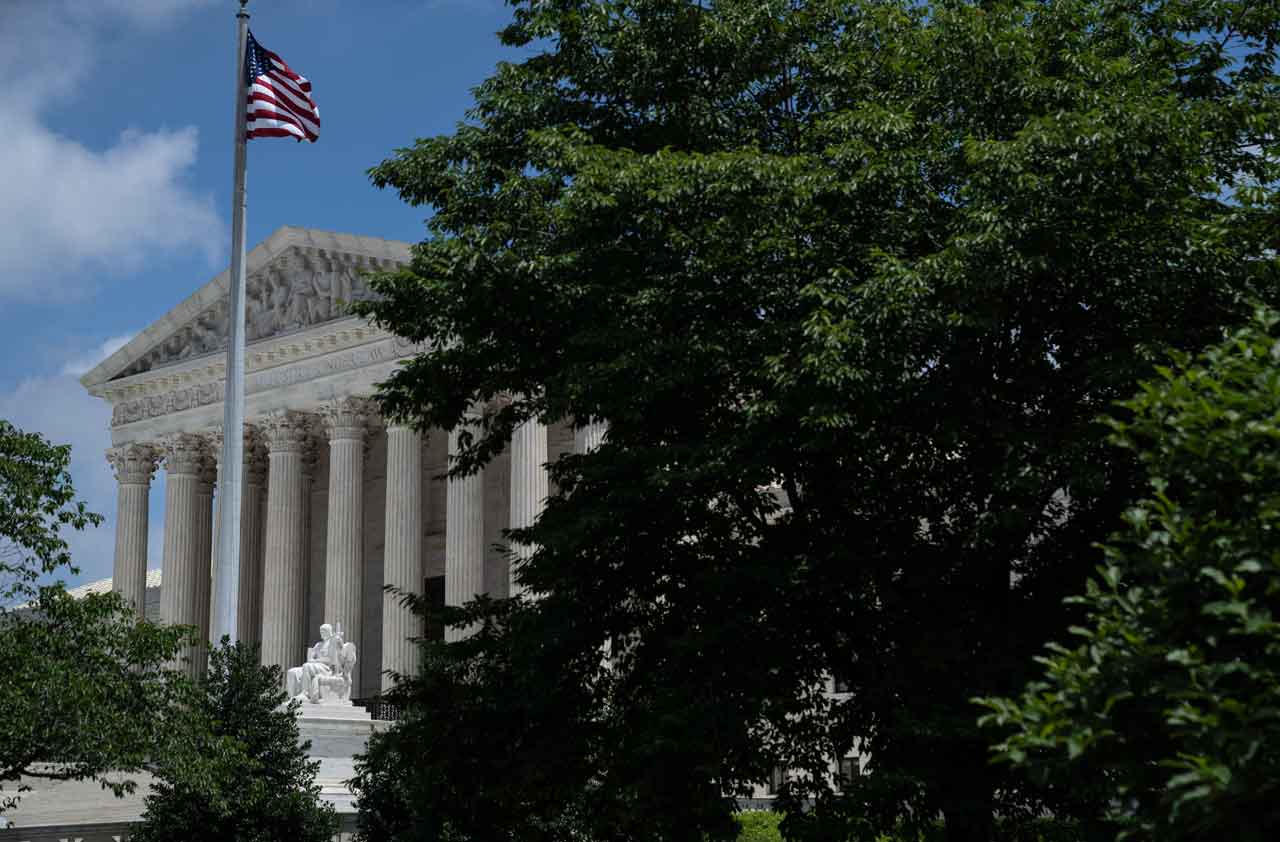America's Perilous National Debt
At $14 trillion and climbing, it's like "termites in the basement."

Profit and prosper with the best of Kiplinger's advice on investing, taxes, retirement, personal finance and much more. Delivered daily. Enter your email in the box and click Sign Me Up.
You are now subscribed
Your newsletter sign-up was successful
Want to add more newsletters?

Delivered daily
Kiplinger Today
Profit and prosper with the best of Kiplinger's advice on investing, taxes, retirement, personal finance and much more delivered daily. Smart money moves start here.

Sent five days a week
Kiplinger A Step Ahead
Get practical help to make better financial decisions in your everyday life, from spending to savings on top deals.

Delivered daily
Kiplinger Closing Bell
Get today's biggest financial and investing headlines delivered to your inbox every day the U.S. stock market is open.

Sent twice a week
Kiplinger Adviser Intel
Financial pros across the country share best practices and fresh tactics to preserve and grow your wealth.

Delivered weekly
Kiplinger Tax Tips
Trim your federal and state tax bills with practical tax-planning and tax-cutting strategies.

Sent twice a week
Kiplinger Retirement Tips
Your twice-a-week guide to planning and enjoying a financially secure and richly rewarding retirement

Sent bimonthly.
Kiplinger Adviser Angle
Insights for advisers, wealth managers and other financial professionals.

Sent twice a week
Kiplinger Investing Weekly
Your twice-a-week roundup of promising stocks, funds, companies and industries you should consider, ones you should avoid, and why.

Sent weekly for six weeks
Kiplinger Invest for Retirement
Your step-by-step six-part series on how to invest for retirement, from devising a successful strategy to exactly which investments to choose.
Kiplinger's spoke with Maya MacGuineas (pictured below), president of the Committee for a Responsible Federal Budget and head of the Campaign to Fix the Debt, about what it would take to solve the U.S. debt problem. Here's an excerpt from our interview:

Committee for a Responsible Federal Budget's Maya MacGuineas Photo by Poon Watchara-Amphaiwan
What about the presidential candidates? Their policies range from denial to drastic fiscal irresponsibility. Hillary Clinton's plans overall are manageable in size and are paid for, but they would do nothing to take us off the current trajectory. Bernie Sanders and Donald Trump have policy platforms that would make our debt situation dramatically worse.
From just $107.88 $24.99 for Kiplinger Personal Finance
Become a smarter, better informed investor. Subscribe from just $107.88 $24.99, plus get up to 4 Special Issues

Sign up for Kiplinger’s Free Newsletters
Profit and prosper with the best of expert advice on investing, taxes, retirement, personal finance and more - straight to your e-mail.
Profit and prosper with the best of expert advice - straight to your e-mail.
Why aren't people more alarmed? It’s very difficult for families to understand that fiscal issues eat away at the foundation of our economy. And it's very difficult for them to focus on something like the national debt when they're also worrying about job security or how to save for their kid's college. So it won’t come from a grass-roots outcry. We're not going to have a Million Man March for getting control of the debt.
What would it take to turn things around? There are two main possibilities: presidential leadership or a crisis. I have seen an incredible willingness among members of Congress to work together on this issue, but unless the President takes the lead it's virtually impossible for them to move forward. What they hear is, 'I want you to do this program' or 'I want you to cut my taxes.' I have heard members say that even if they lost their seat on this issue, they could go home feeling really proud if they could fix the debt problem. But it doesn't make sense for them to throw themselves overboard for a deal that can't get done.
Then there's the sad scenario of a crisis. I don't think that's what will happen here. We are being very shortsighted, but because of the U.S. dollar's position as the world's reserve currency, we can screw up our economy and people will still buy our bonds. It's not as if our creditors are going to change their minds tomorrow and stop lending to us and rates are going to spike up. Given the economic situation globally, that's not likely to happen.
So what's the outcome? We'll muddle along being harmed by high debt levels in terms of lower growth, slower job creation and a lower standard of living and not realize it. Fiscal issues eat away at the foundation of our economy, and very few people will notice. It's what economists have called termites in the basement.
One of the biggest, and thorniest, issues is what to do about Social Security. If we wait and do nothing, we will have across-the-board cuts of more than one-fifth for every single person, regardless of need, by 2034. If we delay 10 more years on Social Security, it will increase the overall cost of what we have to do by 50%. And yet every year we wait.
What should be done? Social Security is just math. We know how to fix it. We can look at increasing revenues by raising the payroll tax cap, but lifting the cap isn't enough. There's not enough money, and the shortfall would still grow over time.
You also need to look at raising the retirement age. There are a lot of scare tactics around this, but all of the proposals phase in an increase at a glacial pace. Basically, the age would increase by a couple of months every couple of years, starting a decade or more down the road. When we made the retirement age reforms as part of the 1983 Social Security deal, they didn't come along for years and years. And when they did, nobody minded. Nobody's complaining now that the retirement age has gradually gone from 66 to 67, as long as people who can't work are covered by Social Security Disability Insurance or other programs.
Do you think both parties could work together on a budget deal? I think getting a bipartisan budget deal done could be one of the best political things for everyone. Then both parties could actually point to fixing something.
Do you see potential for leadership over the next four years, regardless of who wins the election? I'm very worried, but part of my job is to think about where the opportunities are. It will be very important to see who the new President picks for key positions, from Treasury to the Office of Management and Budget. It will be very important to see what the President's first initiative is. The President needs to commit to a budget that would at least have the debt coming down as a share of the economy. That would be a huge moment of opportunity.
Profit and prosper with the best of Kiplinger's advice on investing, taxes, retirement, personal finance and much more. Delivered daily. Enter your email in the box and click Sign Me Up.

Janet Bodnar is editor-at-large of Kiplinger's Personal Finance, a position she assumed after retiring as editor of the magazine after eight years at the helm. She is a nationally recognized expert on the subjects of women and money, children's and family finances, and financial literacy. She is the author of two books, Money Smart Women and Raising Money Smart Kids. As editor-at-large, she writes two popular columns for Kiplinger, "Money Smart Women" and "Living in Retirement." Bodnar is a graduate of St. Bonaventure University and is a member of its Board of Trustees. She received her master's degree from Columbia University, where she was also a Knight-Bagehot Fellow in Business and Economics Journalism.
-
 How Much It Costs to Host a Super Bowl Party in 2026
How Much It Costs to Host a Super Bowl Party in 2026Hosting a Super Bowl party in 2026 could cost you. Here's a breakdown of food, drink and entertainment costs — plus ways to save.
-
 3 Reasons to Use a 5-Year CD As You Approach Retirement
3 Reasons to Use a 5-Year CD As You Approach RetirementA five-year CD can help you reach other milestones as you approach retirement.
-
 Your Adult Kids Are Doing Fine. Is It Time To Spend Some of Their Inheritance?
Your Adult Kids Are Doing Fine. Is It Time To Spend Some of Their Inheritance?If your kids are successful, do they need an inheritance? Ask yourself these four questions before passing down another dollar.
-
 Federal Debt: A Heavy Load
Federal Debt: A Heavy LoadEconomic Forecasts The debt continues to grow, but record-low interest rates could ease the long-term damage.
-
 How the Fed's Moves Affect You
How the Fed's Moves Affect YouEconomic Forecasts It’s pumping trillions of dollars into the economy and keeping rates near zero. Savers are sunk, but borrowers get a boost.
-
 Consumers Will Feel Impact of Rapidly Falling Interest Rates
Consumers Will Feel Impact of Rapidly Falling Interest RatesEconomic Forecasts Mortgage and car loans will experience the most significant dips, while some holders of Treasuries may get a slight boost.
-
 Will You Have to Pay More Sales Taxes on Your Online Purchases?
Will You Have to Pay More Sales Taxes on Your Online Purchases?business One thing’s for sure: Consumers who live in one of the five states without a sales tax won’t be affected by the Supreme Court’s ruling.
-
 Is Credit-Card Debt Out of Control?
Is Credit-Card Debt Out of Control?credit & debt Balances are on the rise, but defaults are still low.
-
 Help Wanted in America: Skilled Workers
Help Wanted in America: Skilled WorkersTechnology In an ever-more-competitive job market, technology increases the need for skilled workers.
-
 The Unintended Consequences of a Boost in Overtime Pay
The Unintended Consequences of a Boost in Overtime PayBusiness Costs & Regulation New rules mean millions more employees will be overtime-eligible. But will employers find workarounds?
-
 Savers Feel the Pain of Low Interest Rates
Savers Feel the Pain of Low Interest RatesMaking Your Money Last The Fed's low-rate policy has cost U.S. savers $470 billion.